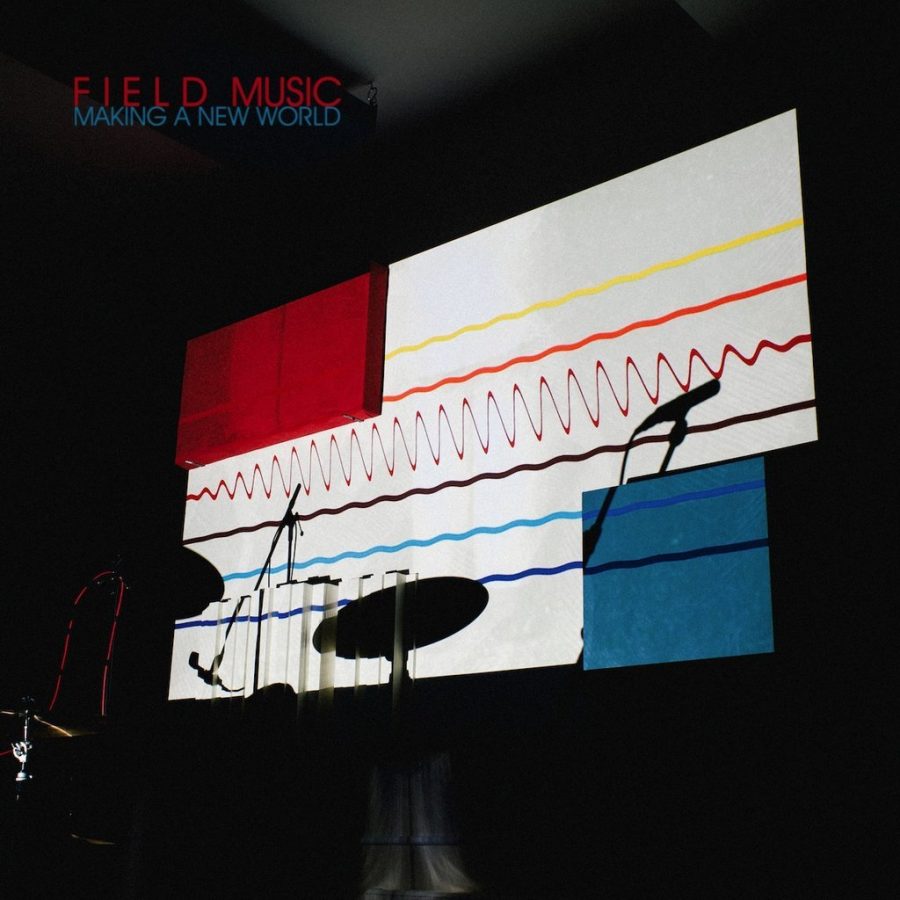Field Music albums have become increasingly hard to get passionate about. Not that there’s anything wrong with them per se – they’re always creative, varied and ambitious. They’re just so damned earnest, aimed squarely at mind rather than body – the chin-stroke, in other words, rather than the rump-shake. The band’s early output might have suggested there’d be an art-pop greatest hits collection by now (see tracks like Shorter, Shorter or Tones of Town). But no, they’ve determinedly avoided anything so people-pleasing. Instead, with cold precision, there’s been a biennial new year new album, each one as unyielding to the casual listener as the last. So when they release a 19-track concept album about the after-effects of the First World War, it’s in keeping with their trajectory, but hardly sets the pulse racing.
Now, your traditional concept album – the readily-mocked prog rock variety – may have been pompous and over-blown, but it was explicit about the musical journey you were going on, with repeated motifs, bold dynamics, and a unifying atmosphere. At its heights, it could make the soul soar. Making A New World is not like that. It’s musicianly in the same way, but you find yourself admiring a certain lick or hook or rhythm in and of themselves, not with any instinctive sense of how they connect to the whole. The album doesn’t sit still, constantly twitching onto the next musical idea – inevitably, an unstraightforward one.
In fairness, a total of 19 tracks makes it sound more formidable than it is. Many of them are song snippets or short instrumentals, including the overkill of not one but two mood-setting instrumental openers.
The songs proper, meanwhile, are finely-crafted artifacts. The choppy piano on Coffee & Wine makes an ear-catching setting for lyrics about returning from war – “Can I pack up my troubles now? And ship them all home?” – and sets it off with a break featuring a tasty guitar lick. Best Kept Garden shuffles into being on the clanking of what sounds like pots and pans and marries a jagged verse with an altogether smoother chorus, while singing of the cottage estates to which the war heroes returned: “Finally someone’s sticking up for us / Building a town where we can settle down”.
But they don’t want you resting on your laurels and relaxing into the album. Coffee & Wine jerks abruptly into Best Kept Garden which does the same to I Thought You Were Something Else which does the same to Between Nations. One sudden stop/start creates an impression. To keep doing it leaves an album permanently disjointed.
And nearly every track has a signature sound, a new instrument doing something arrhythmic or discordant. Beyond That Of Courtesy goes for the tapping of drumsticks. On A Shot To The Arm, it’s off-key Madness piano. It’s like they’ve overthought how to make each song afresh from new ingredients. Inventive, but it doesn’t help cohesion. By the time An Independent State opens with another piano refusing to stick to the melodic path, the album feels longer than it’s 42 minutes.
There are moments of more conventional musical pleasure. The chorus of Do You Read Me?, with its poppy female backing vocals calls to mind, of all things, Five Star’s System Addict, which is all to the good. The uptight white boy funk of Only In A Man’s World is a slightly simpler pleasure too, even if its prosaic lyrics about access to sanitary products aren’t: “What kind of civilisation has made the necessary conditions for procreation a luxury?” Try chanting that on the dancefloor at 2am.
That’s not the only moment where the Brewis brothers have managed to locate modern socio-political debate in the aftermath of the Great War either. The weeping George Harrison-esque guitar at the end of A Change of Heir is a pretty moment that caps off a song about gender reassignment – “Does the mind fit the body or does the body fit the mind?”
This all adds up to an album designed to be admired rather than enjoyed. The esotericism isn’t wilful, it just seems to be their way of operating, heightened perhaps by a Northerner’s work ethic and intellectual overcompensation. It’s not to be knocked, but their jazz indie is more of an acquired taste than ever.
